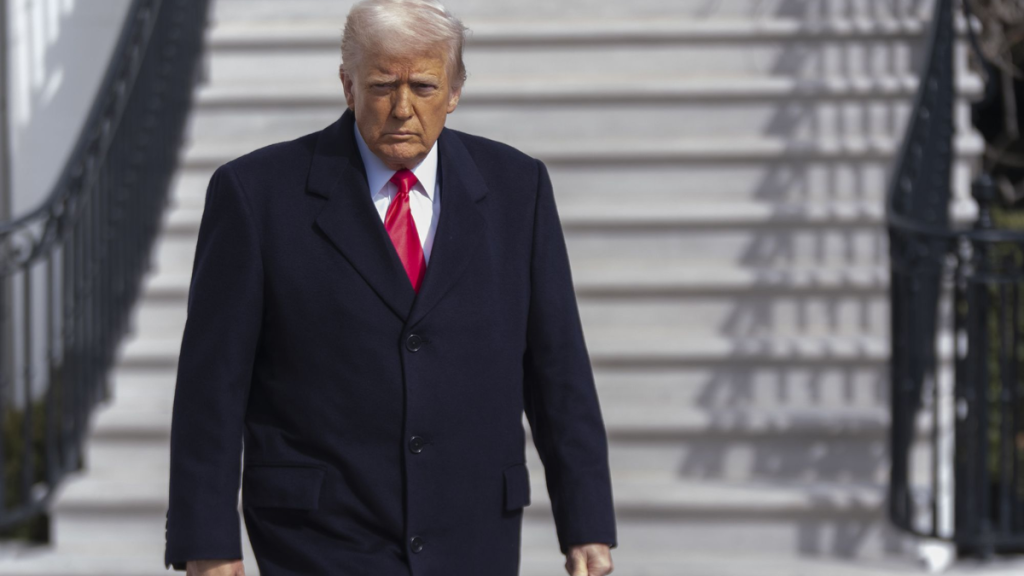The Trump administration’s latest policy push to increase America’s birthrate is facing sharp criticism — not from liberal opponents, but from within the conservative ranks. The initiative, framed as a pronatalist strategy to combat declining birthrates, includes proposed incentives for families who choose to have more children.
While the administration presents it as a “pro-family” solution, many conservatives are voicing strong opposition, calling it “weird and creepy” and likening it to state overreach into private lives.
What Is the Trump Administration’s Pronatalist Policy?
The plan, unveiled in April 2025, outlines a series of financial benefits aimed at reversing the country’s stagnant population growth. Among the proposed incentives:
- Expanded child tax credits
- Government-subsidized daycare and early childhood programs
- Paid parental leave
- Additional housing assistance for larger families
- Student loan forgiveness for parents of three or more children
The administration argues that reversing the demographic decline is essential for maintaining economic stability and national strength. White House officials have said that declining birthrates threaten the nation’s workforce, military readiness, and tax base.
“We must secure the future of American families,” a Trump spokesperson stated. “This is not about coercion. It’s about supporting the people who choose to grow families in a challenging time.”
Conservative Critics Say the Plan Goes Too Far
Despite the administration’s framing, many prominent conservative figures have voiced alarm. Some see the policy as reminiscent of population-control efforts in authoritarian countries, while others question why the government is involved in family planning at all.
Conservative commentator and author Bethany Mandel wrote on X (formerly Twitter), “This pronatalist push feels weird and creepy. The government should support families, but incentivizing people to have more kids is social engineering — full stop.”
Others expressed concern that the policy could lead to surveillance or the classification of “ideal families” by the government. These sentiments reflect a broader skepticism among libertarian-leaning conservatives who value small government and personal autonomy.

Critics Compare It to Dystopian Fiction and Foreign Regimes
The backlash has grown so strong that some commentators are comparing the policy to fictional totalitarian systems. One widely shared post referenced The Handmaid’s Tale, warning that “encouraging childbirth through policy incentives could easily become coercive.”
Others pointed to real-world examples such as Hungary and Russia, where government efforts to raise the birthrate have included bonuses and tax breaks — policies critics say haven’t worked and have infringed on individual freedoms.
In a blog post on The Federalist, conservative columnist Kylee Zempel argued: “Pronatalism sounds like a good idea until it’s used to sort people by breeding potential. Once the government starts dangling carrots for procreation, it stops being about liberty and starts being about control.”
Public Response on Social Media Reflects Divide
The American public is deeply divided on the issue. While some families have welcomed the idea of more financial support for raising children, others see the pronatalist agenda as overreach disguised as benevolence.
The topic trended on platforms like X and Threads, with hashtags like #GovernmentWombWatch and #CreepyBirthPolicy gaining traction. Many social media users questioned how a conservative administration that typically opposes government intervention could promote such a plan.
“First they tell you they’re just helping families,” wrote one user. “Next thing you know, they’re tracking ovulation cycles.”
Despite the backlash, there is also strong support from social conservatives and pro-family groups. Organizations like the American Principles Project and Heritage Foundation have applauded the move, saying it reaffirms traditional family values in a time when cultural norms are rapidly shifting.
The Bigger Picture: America’s Shrinking Population
Demographic experts say the debate, though heated, reflects real and urgent challenges. The U.S. fertility rate hit a record low in 2023, with fewer women having children and choosing to start families later in life. Without immigration or a birthrate rebound, the population is expected to plateau or decline by mid-century.
Proponents of the policy argue that without action, the U.S. risks economic decline, labor shortages, and strains on entitlement programs like Social Security and Medicare. Countries like Japan and South Korea have already seen these effects, with aging populations putting intense pressure on younger generations and national budgets.
But opponents insist that any response must be voluntary and respect individual choice.
Conclusion: Can Government Encourage Parenthood Without Overreach?
Trump’s pronatalist plan has exposed ideological rifts within the conservative movement. While some see it as a bold answer to demographic decline, others fear it marks the beginning of unwanted government interference in the most personal of decisions.
As the administration moves forward, the challenge will be balancing national interests with deeply held values around liberty and limited government. Whether this policy becomes a defining issue in the 2026 midterms or quietly fades from the agenda remains to be seen.
For more detailed reporting on the administration’s proposed family planning policies, visit People’s coverage here.
Disclaimer – Our team has carefully fact-checked this article to make sure it’s accurate and free from any misinformation. We’re dedicated to keeping our content honest and reliable for our readers.
